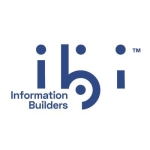Although my organization is not a bank, it does have communication needs throughout its different departments.
While maintenance and support of the solution, like that of Dell Boomi, are very expensive, in the long run, though, say... six months to a year, it will be worthwhile for running one's business. The expense stems from the communication needs which necessitate the support of many preferences.
An issue which should be addressed concerns the difficulty of the product connecting to SAP. In contrast, Mule has developed many connectors so that it can interact with multiple points. This allows us to write our own Java programming for, say, better database connectivity.
As the databases have different versions, we have different connectors for opening them.
With Mule Force, we will write our own connector.
While we do have different types of storage capacity, including that of hardware, RAM and transactions per minute, this is an area that should be addressed. There needs to be more storage capacity for logins and database file storage. Transactions per minute is a point that will need to be hammered out by senior management in its SLA.
When it comes to the technical support of IBM Integration Bus, we are talking about a good product. As with Oracle and Microsoft, the problem with IBM revolves around maintenance, as well as integration. Owing to the expense, there will be insufficient resources.
The initial setup of IBM Integration Bus was not complex.
The product is usually very easy to deploy.
The product was only integrated with IBM servers.
As mentioned, the maintenance and support are very expensive.
Every bank has data available in the mainframe and there is a need to connect to this and extract it, which is where ELT loads come in.
While I would not say that IBM Integration Bus is not a good product, I would point out that it is limited to its own infrastructure. IBM Integration Bus lacks connectors for connecting with other technologies, even though it is not limited to its one cloud. These must be developed from other technologies, such as Azure. If I wish to interact with Azure in the cloud then I must develop a connector to do so. Moreover, IBM is large and we need to have smaller solutions.
I would rate it a four out of ten.















